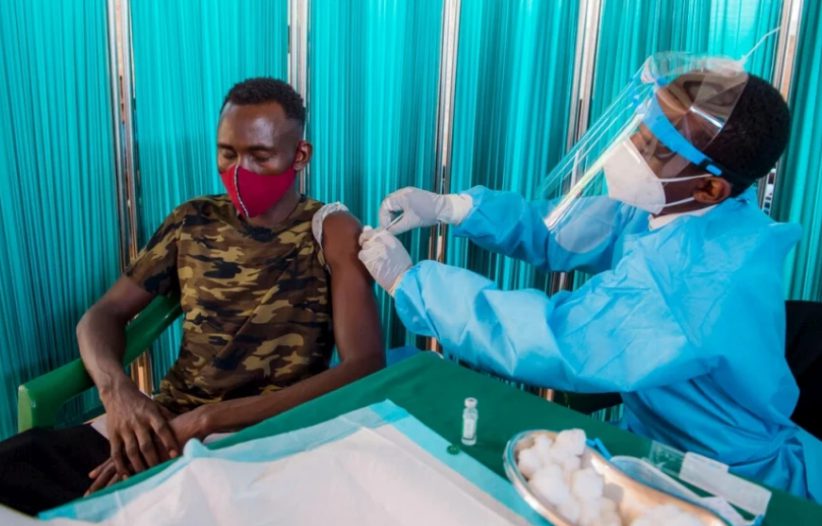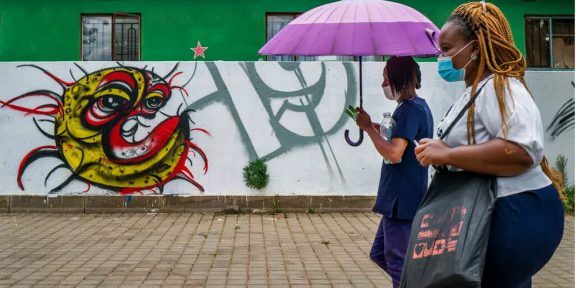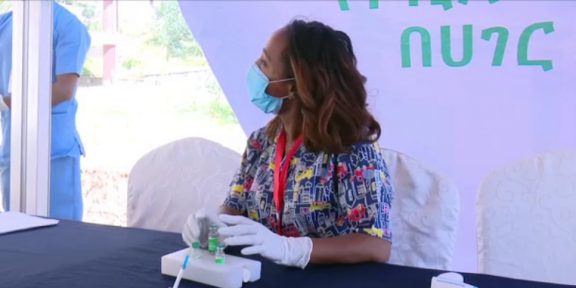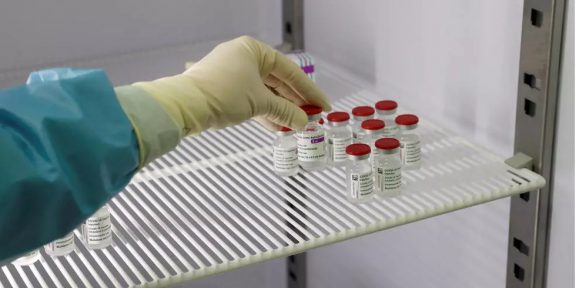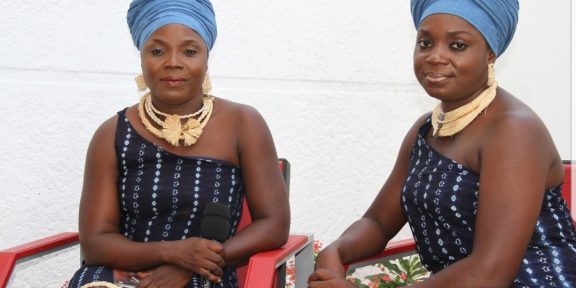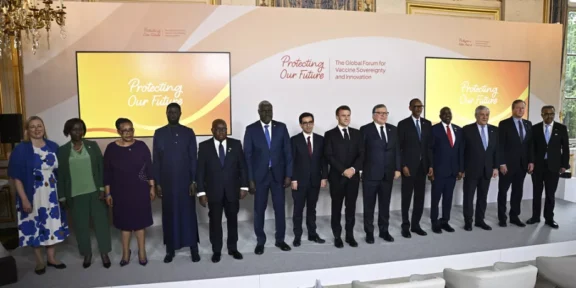As the COVID-19 pandemic continues to threaten the lives and rights of refugees, UNHCR, the UN Refugee Agency, welcomes the Rwandan government’s vaccination this week of 416 refugees – one of the first countries in Africa to do so.
Nearly one year since the country’s first registered COVID-19 case and as part of Rwanda’s national vaccination drive, the Rwandan Ministry of Health inoculated 224 refugees residing in the Emergency Transit Mechanism (ETM) centre in Gashora and 192 refugees in six refugee settlements working on the front lines of the pandemic as community health workers and cleaners or security guards at health clinics in the refugee settlements.
Some 230,000 people in Rwanda have been vaccinated against COVID-19, one week after a countrywide campaign began.
“We commend Rwanda’s inclusion of refugees in its response to the pandemic,” said Clementine Nkweta-Salami, UNHCR’s Regional Bureau Director Bureau for the East, Horn of Africa and the Great Lakes. “We appeal to all countries to include refugees in their vaccination programs on par with nationals to ensure that everyone is safe.”
There are nearly 138,000 refugees hosted the country, mainly from the Democratic Republic of the Congo and Burundi.
The first dose of COVID-19 vaccine is being given to high-risk groups such as health workers, teachers, elderly people with chronic health issues, those aged over 65 years, and other frontline workers. Refugees who meet these criteria are included in the first stage of Rwanda’s vaccination campaign.
UNHCR reiterates that refugees, internally displaced and stateless people and their local host communities must be included on an equal footing with citizens in all national responses to the pandemic, including public health access, vaccines, and social safety nets.
National authorities are responsible for public health responses and COVID-19 vaccination programmes. We are aware that of the 151 countries currently developing national COVID-19 vaccination strategies, 106 have included refugees and asylum-seekers in their plans and 33 are in the process of doing so.
Safeguarding refugee health also protects the health of their host communities and societies. It is not in the interest of any community, state or for the world at large to have people falling through the cracks; marginalized, exposed and unprotected.
The ETM centre was agreed and set up in mid-2019 by the Government of Rwanda, UNHCR, and the African Union, to evacuate refugees and asylum-seekers trapped in Libya, providing them with a vital lifeline and a safe and organized pathway to longer-term solutions.
Presently, 303 refugees and asylum seekers are staying at the ETM. Many have been victims of human traffickers along the routes leading to Libya. The number of places available through the ETM and other humanitarian evacuation flights is still insufficient. UNHCR is advocating for more resettlement countries to offer places and speed up processing of refugees at the ETM.
Source: UNHCR

